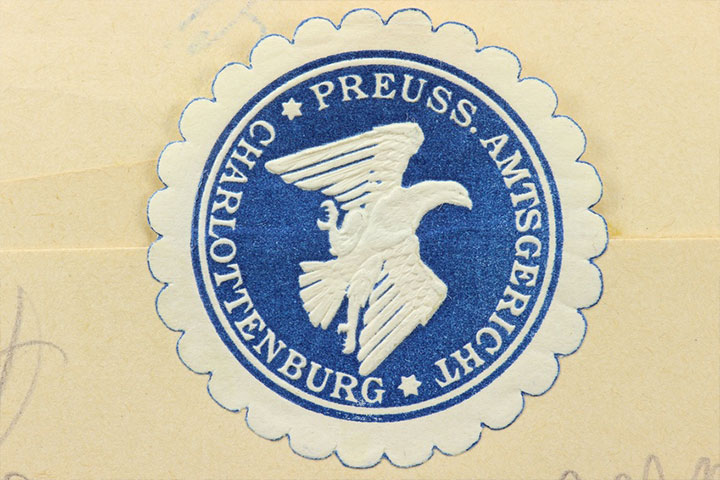
It often happens that civil status documents are lost or damaged, or it is necessary to obtain current copies of documents. In this case, it is necessary to reclaim duplicates of documents. Often, those who have left South Korea face difficulties in this procedure. Our service allows you to reclaim documents in South Korea remotely, and we can carry out courier delivery of the document to anywhere in the world.
Validity of civil status documents in South Korea
Civil status documents issued in South Korea generally have an unlimited validity period. An exception to this rule are certificates of no criminal record, which are valid for no more than 3 months, after which they must be replaced with new ones containing up-to-date data. In addition, the receiving party may impose requirements on the terms, so this should be clarified at the place where the documents are requested.
When to obtain duplicate documents in South Korea
A duplicate birth certificate, marriage certificate, name change certificate, divorce certificate, criminal record certificate or death certificate may be required to register a marriage abroad, a newborn child, citizenship, inheritance, data verification for pension applications, opening bank accounts, employment and other bureaucratic issues.
What documents can be requested in South Korea
- Birth certificate
- Marriage certificate
- Certificate of change of surname
- Divorce certificate
- Death certificate
- Certificates of good conduct
- Educational documents
- Other civil status documents
Birth certificate
A birth certificate is an official document provided by the Registrar or acting Registrar of the relevant Civil or Consular Register. It verifies details of an individual's birth, including the date, sex, and, if applicable, the time of birth and family relationships.
The birth of a child is to be reported by the parents. If neither the mother nor the father can file the report, a cohabiting relative, medical doctor, midwife, or another person involved in the delivery must do so, providing the reason for the parents' inability in the report.
This report must be filed by an authorized individual and within one month of the child's birthdate. Reports can be submitted to the overseas Korean diplomatic mission, local registration offices or the family registry office, depending on the reporting person's residence and status.
Overseas Koreans born abroad without an address in Korea cannot obtain a resident registration number through a birth certificate alone and must file an additional resident registration report with the appropriate district office.
Birth registration is applicable in-person by visiting a competent administrative agency in the corresponding district, via mail and via online application through the Electronic Family Registration System of the Supreme Court website.
Required documents
- Document evidencing that the child’s mother is a Korean national at the time of the child’s birth
- Documents providing the nationality of the child, in cases in which the child has dual nationality
- Marriage certificate of parents
Marriage certificate
The marriage certificate is the legal record of marriage, used to verify marital status. It is usually required for procedures such as changing the last name, applying for spousal benefits, immigration applications and for inheritance matters.
There are three main ways to obtain a Marriage Certificate in South Korea. Online via government websites such as the Ministry of Justice Portal, mobile issuance via the authorized app such as the Ministry of Justice App and in-person at the Government office.
There are different types of marriage certificates that showcase different aspects of the agreement. A General Certificate provides a brief overview of your current marital status to confirm whether a marital relationship exists. A Detailed Certificate includes records of all your marriages, past and present, and is often used to review a spouse's marital history. Last but not least a Specific Certificate displays the relationship network of a particular spouse, focusing only on necessary details, and excludes information about past spouses if not required.
Required documents
- Valid ID
- Completed application form
Divorce certificate
A divorce certificate (also known as decrees) serves the purpose to verify the legal dissolution of a marriage. It is required for procedures such as remarrying, updating marital status on legal records, immigration applications, and legal matters involving custody, support, or property division.
Divorce certificates are issued by the local government office (Gu-office, Si-office, or Eup/Myeon office) where the divorce was registered. You may also request it through the Family Court if the divorce was finalized there.
Visit the local government office or court where the divorce was registered. If you’re abroad, you can apply through the nearest Korean embassy or consulate. Some records may also be available through the online government portal (Minwon24), but this requires a Korean ID or access to Korean e-government services.
Required documents
- Valid government-issued ID
- Completed application form
Death certificate
A death certificate officially records the details of an individual’s death, such as the date, time, and location, and is issued by the municipal authority where the death occurred.
In the event of a death in South Korea, the local hospital should be contacted to obtain a Death Certificate (Sa Mang Jin Dan Seo) from the attending doctor. If the death is due to an accident or crime, the local police station must be contacted to obtain an Autopsy Certificate (Si Chae Geom An Seo). These certificates are issued exclusively to the deceased's family or relatives and are required when registering the death.
For foreigners with a registration card, the family or relatives must immediately notify their national embassy and report the death to the district or local office (Gu office or Dong Sa Mu So) within one month. If the deceased is not a registered resident in South Korea, the family should promptly inform their national embassy, which will assist with the necessary legal processes for registering the death and arranging the repatriation of the body.
Required documents
- Completed application form
- Proof of death (medical certificate confirming the cause and date of death)
- Applicants ID
- Proof of Kinship
Police clearance certificate
A criminal record certificate, also known as a police certificate, is a document used to verify an individual's criminal record or confirm the absence of one. It is required for employment in sensitive fields, visa or immigration applications, volunteering and adoption proceedings.
In Korea, criminal record information is managed by the Criminal Investigation Record Check under the Korean National Police Agency (KNPA). Applicants for a Police Clearance Certificate (PCC) must specify their period of stay in Korea and provide documentary proof of their stay. This includes the first entry and last exit date stamps, along with color copies of all visa pages.
The application must be submitted in person, however, if you are outside Korea and cannot access a Korean consulate, applying directly to the Korean National Police Agency may be helpful.
You can submit an application to the Korean National Police Agency through an international courier. However, you must include a fingerprint identification document issued by your country’s police authority certified by the official stamp of the authorized agency along with the other required documents.
Required documents
- Completed application form
- Standard passport photo (taken within 6 months)
- Valid passport
- Copy of your ARC card or a Korean visa
- If your name is changed by marriage etc.- a notarized document to prove your identity
For international use
If the certificate is to be used abroad, it may require apostille and an official translation into the language of the destination country.
Educational Documents
Foreign educational documents only carry the same legal value as South Korean documents if they are exempt from legalization or have undergone the necessary legalization process. Documents from countries with bilateral agreements with the South Korea republic are fully exempt from legalization. Documents from countries that are part of the Hague Convention of 1961 undergo a simplified procedure called apostille. If neither countries are part of the convention or have bilateral agreements they undergo consular legalization
















































